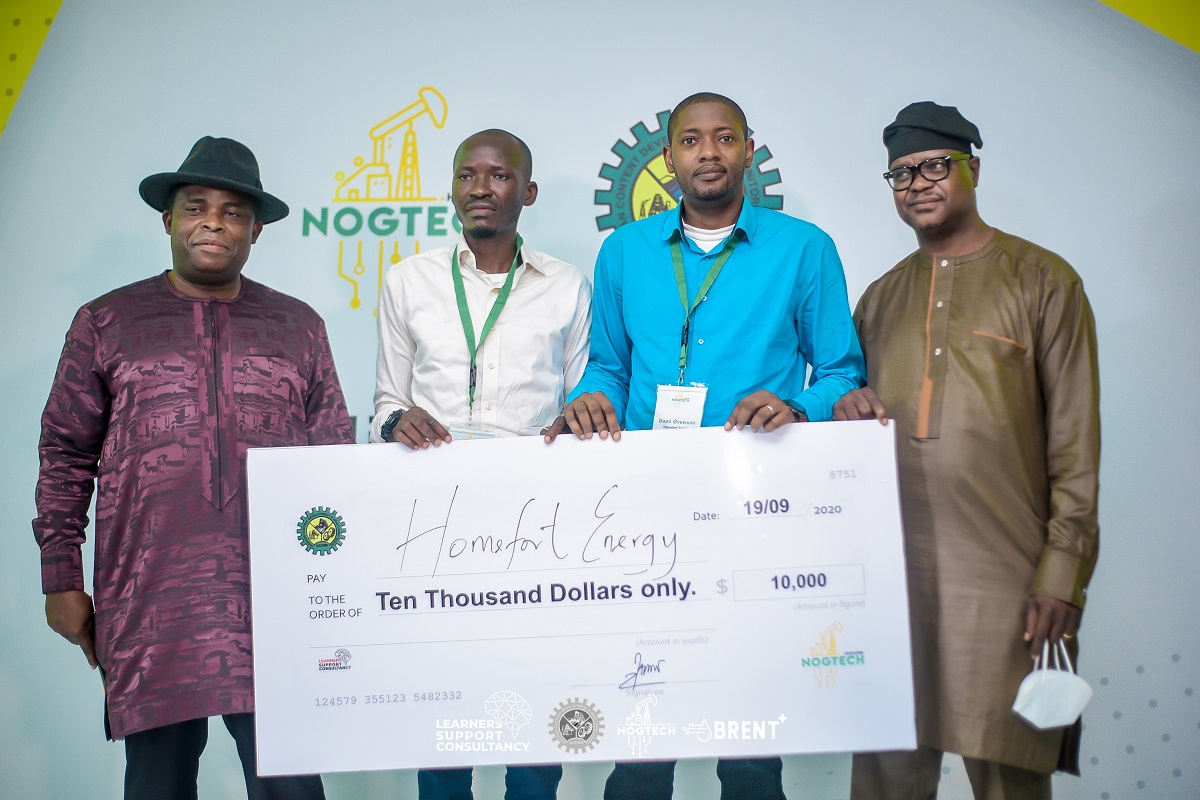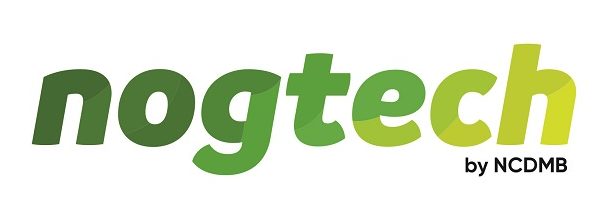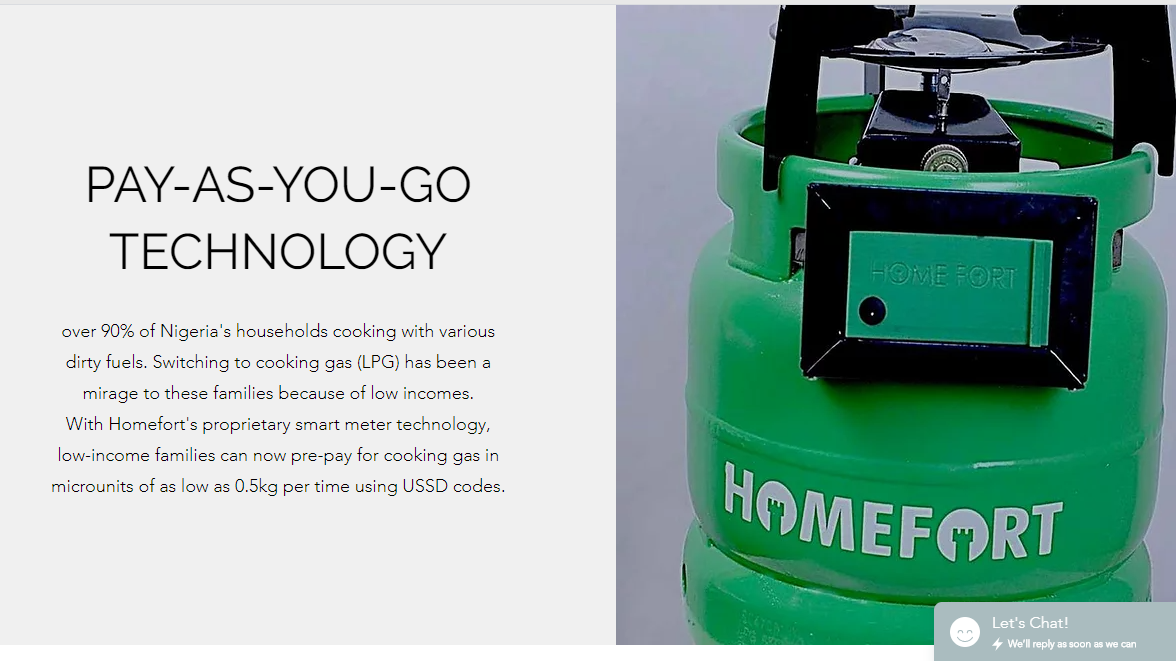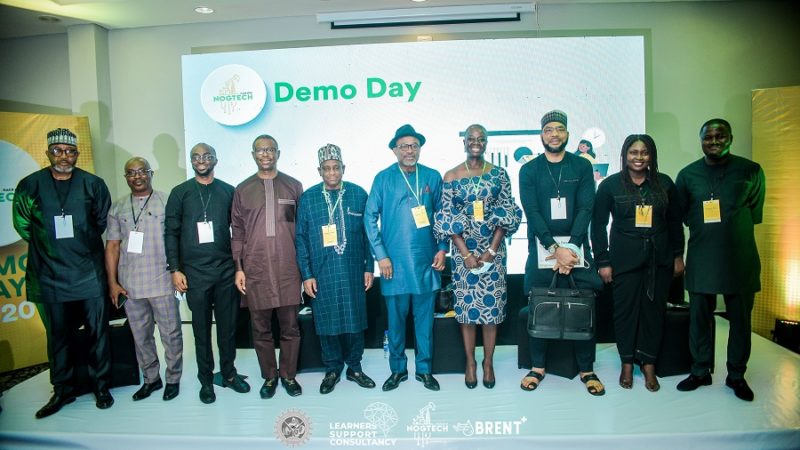Homefort Energy wants to help low-income households access clean energy from their smartphones

In Nigeria, not many people have access to clean energy and generally, more than 40% of the world’s population rely on polluting and unhealthy fuels for cooking.
To cater for basic needs such as cooking, low-income individuals and households in the rural areas turn to kerosene and firewood which is highly flammable. However, gas is a new fuel on the block and the LPG (liquefied petroleum gas) industry is increasingly gaining momentum in Nigeria.
Considering that energy is gaining ground, expanding infrastructure and upgrading technology to provide clean and more efficient energy in all countries will encourage growth and help the environment, a report says.
In alignment with the seventh on the SDGs list — affordable and clean energy –, Homefort Energy with the help technology allows low-income household recharge and purchase cooking gas in bits. They can buy gas as low as ₦100 and also refuel the gas cylinders when exhausted.
We caught with the Homefort Energy team, Opeyemi Owosho and Dapo Oyewumi to share their journey with us.
Why did you launch Homefort?
Obviously, it’s common knowledge that Nigeria is the poverty capital of the world and over 51% of Nigeria’s population live below the poverty line. These people deserve a good shot at life, good products and clean energy. Taking a look at other industries for over the last 15 years, the ‘packetization’ industry has grown in leaps and bounds. You can get sachet tomatoes and other sachet products just so that manufacturers can serve those at the bottom of the pyramid.
In the cooking gas industry, it’s close to the link of the pyramid. It can’t be accessed because of the high switch cost and how cooking gas is sold — it’s sold at the price point poor families can’t afford.
So we thought, can we just bring the ‘sachetizition’ ideology to cooking gas where low-income consumers can pay for cooking gas in micro-units from their mobile phones. All a customer needs to do is make a ₦50 down-payment to start using cooking gas. That was the idea and we’ve worked on it for two years straight, here we are with our MVP.
What were you working on before Homefort?

This is my second startup. My first was also in the LPG industry, we manufacture tabletop gas coolers and we did that for three years. For obvious reasons, the startup failed but we failed forward. The insight and knowledge we gained from the previous startup gave us the platform to start this new one we are into.
Did you have any educational background in oil and gas?
Yes, I do. I studied petroleum oil and gas engineering from the University of Lagos. I also have three years of hands-on experience in a gas plant company. Basically for me, I’ve played in the oil and gas industry and I felt I could make some great impact within the space.
Can you tell us how you started building the team?
Our biggest strength at Homefort is the team. We have a team with the right skill. I met my co-founder, Dapo Oyewumi six years ago at General Electric garage. We’ve done projects together outside of Home Fort and I know how competent and innovative he is when it comes to hardware designs. When I was going to start Homefort Energy, it was natural for me to reach out to him so we could jump it on together. He obliged and here we are.
Do you have other team members?
We have other team members and we are just two co-founders. In all, we are a team of five consisting of myself, Dapo as the head of technology, an embedded systems engineer and software engineers — backend and frontend.
When exactly did you start in terms of building your product?

We started in January 2019 and our unique selling proposition is the proprietary smart meter. It’s a new ground for us to develop a smart meter and it will take a while — a year and a half to get an MVP. So it’s been close to we’ve been working on this.
Could you walk us through the technology behind the product itself?
Nigeria is the lowest consumer of cooking gas per capita head globally. Nigeria, being the poverty capital of the world, is directly responsible for this. In Nigeria, 22 million poor households can’t use cooking gas due to low income.
Simply put, what we are doing in Homefort is incorporating the ‘sachetizition’ model to LPG space. With our proprietary smart meter (retrofitted to cylinders), low-income families can now buy cooking gas in micro-units of as low as ₦200 per time using USSD from their mobile phones. And when micro-units purchased are exhausted, our smart meter locks-in gas within cylinders until new micro-units are re-purchased. Also, before cylinders finally run out of gas (our smart meter monitors gas level) we schedule delivery of new pre-filled cylinders for these low-income customers.
How’s Homefort Energy funded? Have you received any investment at all since inception?
Yes, we got some funding. $25,000 in grant (I guess we are lucky). We also got $10k from NOGTECH and the fund from NOGTECH fund shoots the total to $25k. Hopefully, we should close our pre-seed round before the end of Q1 2021.
Who are your competitors in this space and how have you been able to manage them?
Oando gas. They have a viral distribution network and in the LPG space, distribution is king — especially to last-mile customers. For now, we do not worry ourselves with the competition. Presently, we are focused on testing our models and that’s what we’ve been doing for 4 months now.
Your journey seems interesting so far. Where do you see the company in about 5 years time?
Nigeria’s LPG sector is in hyper-growth phase. I think we are lucky to be operational at this moment. Riding on the wave of the industry’s growth, I strongly believe we should be serving over 100,000 families in Nigeria and pushing the retail volume of 150,000 metric tonnes per annum.
What do you have to say about NOGTECH and has it helped so far?
With NOGTECH accelerator programme, Homefort Energy has a clearer growth path. NOGTECH also opened access to market and key networks in the downstream sector.
It’s an amazing accelerator programme altogether.






